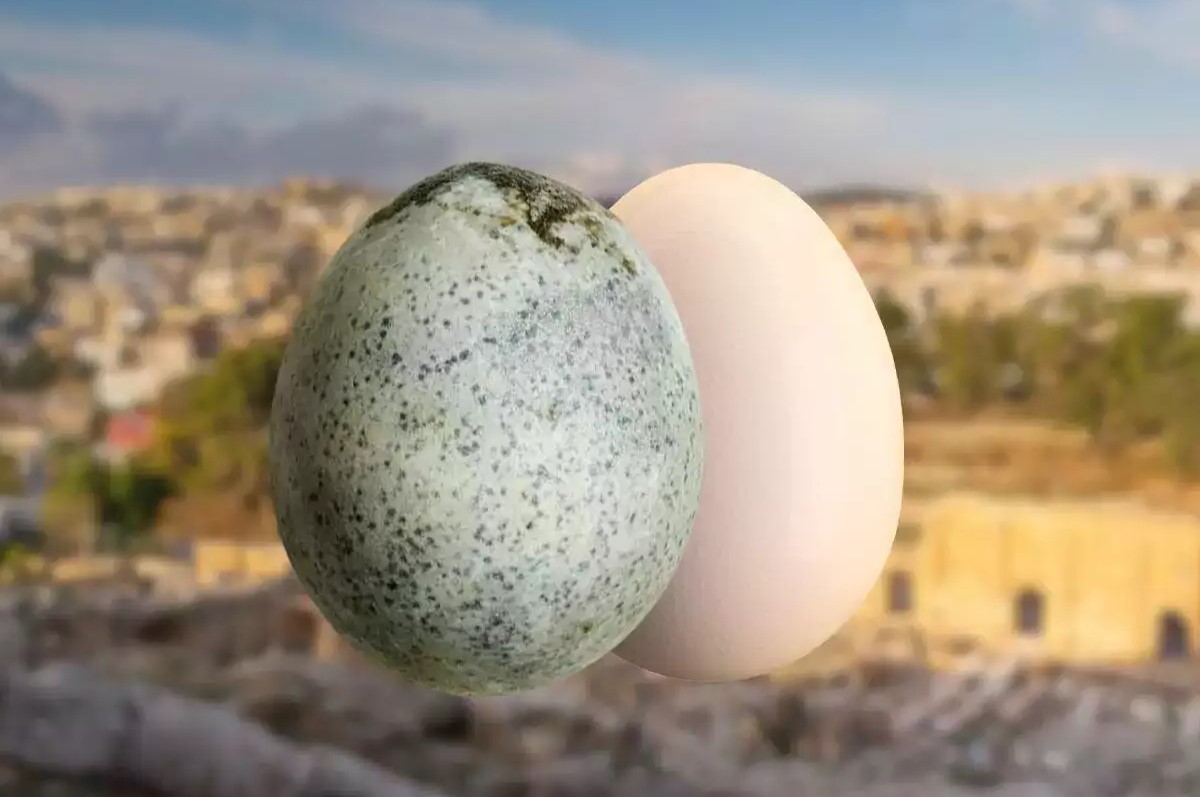
Did you know that ancient Romans had a unique relationship with eggs? From their culinary uses to their symbolic meanings, eggs played a significant role in Roman culture. Eggs were not just food; they were symbols of life and rebirth. Romans used them in various dishes, from appetizers to desserts, showcasing their versatility. They even believed eggs had protective powers, often placing them in tombs to ensure safe passage to the afterlife. Curious about how these ancient people incorporated eggs into their daily lives? Let's crack open some intriguing facts about ancient Roman eggs and discover their fascinating history!
Key Takeaways:
- Ancient Romans cherished eggs for food, medicine, and symbolism. They preserved eggs in unique ways and used them in diverse dishes, showcasing their culinary creativity and cultural significance.
- Eggs were more than just a breakfast staple in ancient Rome. They were symbols of fertility, used in rituals, and even featured in art and literature, reflecting their deep cultural importance.
Ancient Roman Eggs: A Culinary Delight
Ancient Rome was known for its grand feasts and diverse cuisine. Eggs played a significant role in their diet, not just as food but also in rituals and medicine. Here are some fascinating facts about ancient Roman eggs.
-
Romans often started their meals with eggs, a practice known as "ab ovo usque ad mala," meaning "from eggs to apples."
-
Eggs were considered a symbol of fertility and rebirth, often used in various rituals and ceremonies.
-
Romans believed that eggs could ward off evil spirits. They would sometimes bury eggshells in their fields to protect crops.
-
Eggs were a common ingredient in Roman recipes, including the famous "patina," a type of omelet or frittata.
-
The Roman cookbook "Apicius" contains several egg-based recipes, showcasing their versatility in ancient cuisine.
Egg Preservation Techniques
Preserving food was crucial for ancient Romans, especially during long journeys or military campaigns. They developed several methods to keep eggs fresh.
-
Romans preserved eggs by coating them in a mixture of salt and vinegar, which helped extend their shelf life.
-
Another preservation method involved storing eggs in a mixture of clay and salt, creating an airtight seal.
-
Romans also boiled eggs and stored them in honey, which acted as a natural preservative.
-
Pickling eggs in brine was another common technique, adding a unique flavor to the preserved eggs.
-
Romans sometimes smoked eggs, a method that not only preserved them but also added a distinct taste.
Eggs in Roman Medicine
Eggs were not just food; they were also used in ancient Roman medicine. Physicians of the time believed in their healing properties.
-
Roman doctors used eggs to treat various ailments, including digestive issues and respiratory problems.
-
Eggs were believed to have cooling properties, making them a remedy for fevers and inflammations.
-
Crushed eggshells were used to make a calcium-rich powder, which was prescribed for bone health.
-
Romans believed that raw eggs could help soothe sore throats and coughs.
-
Egg yolks were used in ointments and salves to treat skin conditions and wounds.
Egg Symbolism and Superstitions
Eggs held significant symbolic meaning in ancient Rome, often associated with myths and superstitions.
-
Romans believed that dreaming of eggs was a sign of good fortune and prosperity.
-
Eggs were used in divination practices, where their shape and condition were interpreted to predict the future.
-
During weddings, eggs were often given as gifts to symbolize fertility and the hope for many children.
-
Romans painted eggs during spring festivals, a tradition that influenced modern Easter egg customs.
-
Eggs were sometimes buried with the dead, symbolizing the hope for rebirth in the afterlife.
Egg Production and Trade
Eggs were a staple in the Roman diet, and their production and trade were well-organized.
-
Romans raised chickens specifically for egg production, with large farms dedicated to this purpose.
-
Eggs were traded extensively throughout the Roman Empire, reaching distant provinces.
-
Wealthy Romans often had their own poultry farms to ensure a steady supply of fresh eggs.
-
The price of eggs varied depending on their size and quality, with larger eggs fetching higher prices.
-
Romans sometimes imported exotic eggs, such as those from peacocks and ostriches, for special occasions.
Culinary Innovations with Eggs
Ancient Roman chefs were creative with their egg dishes, experimenting with various ingredients and techniques.
-
Romans made a dish called "ovum spongia ex lacte," a type of egg custard made with milk and honey.
-
"Isicia omentata" was a popular Roman dish, similar to modern meatballs, often containing eggs as a binding agent.
-
Romans enjoyed "ovum patina," a baked egg dish with herbs, cheese, and sometimes meat.
-
"Gustum de praecoquis" was a Roman appetizer made with eggs and apricots, showcasing their love for sweet and savory combinations.
-
Eggs were often used in sauces and dressings, adding richness and flavor to Roman meals.
Eggs in Roman Art and Literature
Eggs also found their way into Roman art and literature, reflecting their cultural significance.
-
Roman frescoes and mosaics often depicted eggs as part of banquet scenes, highlighting their importance in feasts.
-
Eggs were mentioned in Roman poetry and literature, symbolizing new beginnings and life.
-
Roman playwrights used eggs in their comedies, often as props in humorous situations.
-
Eggs were sometimes included in Roman tomb inscriptions, symbolizing the deceased's hope for rebirth.
-
Roman coins occasionally featured eggs, emphasizing their role in Roman society and economy.
Final Thoughts on Ancient Roman Eggs
Ancient Roman eggs weren't just food; they were a symbol of wealth, status, and culinary innovation. Romans used eggs in various dishes, from appetizers to desserts, showcasing their versatility. They even had a method for preserving eggs, ensuring a steady supply year-round. Eggs were also part of religious rituals and offerings, highlighting their cultural significance. The Romans' ingenuity in cooking and preserving eggs laid the groundwork for many modern culinary practices. Understanding these facts gives us a glimpse into the daily lives and traditions of ancient Rome. So next time you crack an egg, remember its rich history and the role it played in shaping culinary traditions. Ancient Roman eggs truly were a marvel of their time, blending practicality with cultural importance.
Frequently Asked Questions
Was this page helpful?
Our commitment to delivering trustworthy and engaging content is at the heart of what we do. Each fact on our site is contributed by real users like you, bringing a wealth of diverse insights and information. To ensure the highest standards of accuracy and reliability, our dedicated editors meticulously review each submission. This process guarantees that the facts we share are not only fascinating but also credible. Trust in our commitment to quality and authenticity as you explore and learn with us.


